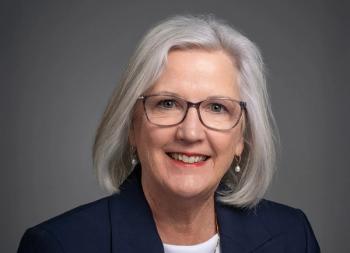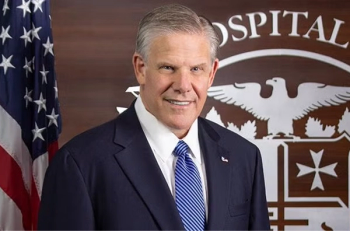
TEFCA isn’t dead, and it’s getting teeth
Health Gorilla CEO Bob Watson talks about TEFCA in the return of Data Book, a podcast from Chief Healthcare Executive. He talks about making data exchange easier, AI, and putting the patient first.
After years of hope and planning, Bob Watson is seeing promise in TEFCA.
TEFCA, the
Watson, the CEO of Health Gorilla, says TEFCA has struggled to meet expectations. But he says he’s optimistic about its prospects and the federal government’s commitment in the latest episode of Data Book, a podcast by Chief Healthcare Executive®. (You can find the link below.)
“Our view is that TEFCA is not dead, and that there will be teeth in TEFCA going forward,” Watson says.
Watson says the government, healthcare organizations, and technology vendors have an obligation to make individual health data available at the point of care. He says that will lead to better outcomes for patients.
The U.S. Department of Health & Human Services has designated 10 companies as Qualified Health Information Networks, meaning they have met the significant technical demands to be part of TEFCA. Health Gorilla is one of those companies.
TEFCA has fallen short of expectations due to a lack of incentives to spur participation, Watson says.
“I think TEFCA limped along for a few years, in all honesty, just frankly, because there wasn't any teeth in it,” he says. “It was entirely voluntary and no punishment for not participating.”
Information blocking remains a thorny problem, in Watson’s view. He relayed his own personal experience of moving from Atlanta to North Carolina a couple of years ago. He says he’s still seeing requests for the release of health information blocked by providers.
“That's not right, and this is where I think the enforcement comes in, this whole concept of information blocking that's been in the news and in some lawsuits,” he says.
“I honestly don't think there's anything nefarious, by the way, at the provider level for not sending the information, but I do believe that the system doesn't reward providers for providing the information or punish them for not doing it. The current administration seems to be heading down the punishment path.”
While companies and providers won’t be forced to share information, per se, they may face consequences if they don’t, he suggests.
“Think about how you're driving your car and you're speeding, and you'll continue to speed until there's a flashing blue light behind you,” Watson says. “I think there's a flashing blue light coming to enforce voluntary, but not optional, participation.”
Watson says he’s encouraged by the uptick in traffic he’s seeing on the health information networks. He also says the federal government is making a commitment to TEFCA, and to the easier exchange of health information.
“We have a federal government that seems to be committed, not just in words, but in action, to facilitating the movement of patient data, to improve patient care. I feel good about that,” Watson says.
The Trump administration held an event this summer to tout the vision of making health tech great again. Watson also says he appreciates the commitment of Health Secretary
“I believe that this administration is trying to do the right thing as it relates to this particular topic, making healthcare information, individual patient healthcare information available to the caregivers to support that patient,” Watson says.
Too often in healthcare technology, Watson says the patient is missed. He says that needs to be the central focus, and “everything else is noise.”
“Physicians are here to take care of patients,” he says. “That’s their role on the planet. Well, let's make it easy for them. Let's give them the information they need so they can have a proper diagnosis, treat the patient, and the patient has a healthier outcome. And, you know, the doctor gets paid.”
Watson first began working on interoperability in the 1990s, and now he thinks the easier exchange of health information is in sight.
But he says the goal isn’t simply to share information but to ensure that it is easy for clinicians to use.
“We fundamentally believe that it's inefficient for the provider for us to just deliver data,” he says. “We have to do something with it before we deliver it. We use the words ‘AI ready,’ and that either freaks people out or will have them doing cartwheels down the middle of the highway.”
“Just delivering the data is not going to work. The physicians will reject it. They won't use it, they won't pay attention to it, they won't click on the button that gives them the data. But if you give them the data in a format that's summarized and highlighted on certain things, they can make their own determination, and they can treat the patient faster,” he says.
After spending more than four decades in healthcare technology, Watson retired in 2023. But Watson’s retirement was short-lived, as he became CEO and executive chairperson of Health Gorilla in 2024.
After two big efforts on interoperability, Watson says, “Here's a chance at another bite of the apple, and the environment's changed.”
When asked if the third time is the charm, he says, “Let's hope so. It's my last shot.”






























